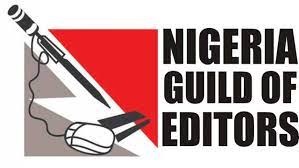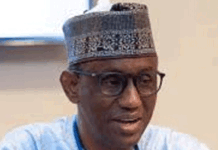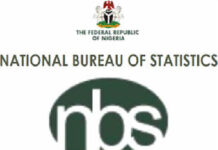.’Proposed media bills draconian’
. Buhari re-introducing Decree 4 under different guise, say stakeholders
Nigerian Guild of Editors (NGE) has said that the media industry is not a political opponent or enemy of the Federal Government, saying many of the political elite’s attacks on the media are habitually not envisioned to win an argument on the values, journalistic or legal; but designed to bully media organizations.
Reacting to what it described as ‘’draconian provisions’’ in the two Bills – to amend the Nigerian Press Council (NPC) Act, and the National Broadcasting Commission (NBC) Act that are currently before the National Assembly, which the sponsors said were aimed at moderating the ‘’recklessness’’ of the media, the Guild said that the Bills are actually meant to criminalise journalism practice in the country.
In a statement issued by the umbrella of all editors in Nigeria and signed by Mustapha Isah (President) and Iyobosa Uwugiaren (General Secretary), on Tuesday, the Guild said that the ‘’oxygen of democracy’’: the media, will be strangulated if the bills are passed in their present forms.
‘’At a time, there is a popular ongoing global conversation about the need for a #NewDealForJournalism’’ – for immediate and sustained action from, and collaboration between governments and other influential actors to improve the policy, funding, and enabling environment for independent professional journalism, we see the proposed legislations as unhelpful.
‘’While we are not opposed to an Act that will promote media stakeholders-driven regulatory council, the many draconian provisions in the Hon. Odebunmi Olusegun’s sponsor bills are actually aimed at criminalising media practice in Nigeria. While the intention of the sponsor of the bills is suspicious, the bills negate all known features of media regulatory bodies in the world’’, the Guild stated.
For example, the Guild said while the NPC Act. CAP N128, Laws of the Federation of Nigeria 1992, created by the military dictatorship, gives the Council Board full responsibility to administer the council, the proposed Act restricts the council board to ‘’advisory capacity on a part-time basis without direct interference in the day to day administration of the council’’, and gives the Executive Secretary all the power.
‘’While the proposed NPC Act says the Board shall consist of one representative each from the Nigeria Union of Journalists (NUJ); Nigerian Guild of Editors (NGE); Newspapers Proprietors Association of Nigeria (NPAN); Broadcasting Organisation of Nigeria (BON); Ministry of Information; two representative of the general public, one of whom shall be a legal practitioner and a woman and Executive Secretary of the council, who shall serve as the secretary to the Board, the board is a mere advisory body.
‘’The Bill also says that the Chairman of the Board shall be appointed by the President on the recommendation of the Minister in charge of Information. And that all other members of the Board shall be appointed by the President on the recommendation by the Minister of Information. The intension of this kind of Council is suspicious”, the Guild said.
The body of editors is of the view that the professional body doesn’t need the approval of the Minister of Information to establish and disseminate a National Press Code and standards to guide the conduct of print media, related media houses and media practitioners and approves penalties and fines against violation of the press code, as provided for in the Bill.
‘’The Guild is not aware of any media regulatory council in the world, which says that media regulatory council shall establish a National Press and Ethical Code of Conduct for media houses and media practitioners, which shall come into effect and be disseminated after approval by the Minister of Information, and that the code shall be binding on every media houses and journalists.
‘’Again, apart from the fines for journalist or media houses that violate the Act, the Bill also says that in an extreme case, the council shall order the striking out of the name of the journalist from the register; and suspend the person from practice by ordering him not to engage in practice as a journalist for a period not exceeding six months; as may be specified in the directive.
‘’This kind of media regulatory council will neither serve the interest of the media industry, strengthen its constitutional role – of holding public officers accountable to the people nor serves the general interest of the public-who are the original trustees of the media’’, the Guild explained.
The NGE noted that in the proposed NPC legislation, the sponsor mischievously smuggled in the controversial ‘’fake news’’ provision by stating that any person who carries news, established to be fake thereafter, commits an offence and is liable on conviction to a fine of N5million or a term of two-year imprisonment or both, and a compensation of N2million payable to the person(s), group(s), corporate bodies, government or any of its agencies whom the news was carried against.
According to the NGE, the bill also states that any print media house whose medium was used to carry such news is liable on conviction to a fine of N10million or closure of such media house for a period of one year or both and compensation of N20million to the person, group, corporate body, government or any of its agencies, whom the news was carried against.
On the proposed NBC amendment legislation, the Guild said that the section 23 of the Bill, which gives the Minister of information powers to participate in the making of regulations is unhelpful, saying the participation of the Minister will turn NBC into a tool for political interference.
The Guild noted that the provisions of the two bills give the impression that the Federal Government is out to crush its enemy, saying that the media is not an enemy of the state.
The NGE added that the two bills if passed, will compound the nation’s negative image in the global community.
‘’Nigeria comes in at No. 120, the rough equivalent of a D+ in this year’s index by Reporters Without Borders. You’ll find similar results on the Democracy Index where Nigeria is ranked No. 110 – the lowest-ranking Hybrid Regime, one slot away from Authoritarian, the editors said.
It said the bills are seen by many as attempts to further stifle the democratic space in the country that is currently having challenges in all fronts.
The editors said they are also opposed to heavy involvement of the President and the Minister of Information in the composition of appointments into the boards of NBC and the NPC, saying the board members should appoint their own chairmen.
The Guild added, ‘’The NPC and NBC should be truly independent, and shouldn’t be under the supervision of the Minister of Information, who is a political office holder and affiliated to a political party.
‘’The Ghana model comes to mind here. Nigeria should be seen to be moving with time, instead of taking retrogressive steps in media freedom.’’
The Guild therefore called on the National Assembly to remove those obnoxious provisions in the two bills that make it look as if they are meant to strangulate, instead of regulate the media.
. Buhari re-introducing Decree 4 under different guise, say stakeholders
The President of the Nigeria Union of Journalists, Christopher Isiguzo, on Monday reiterated the position of stakeholders in the media towards the National Press Council (Amendment) Bill currently before the National Assembly.
He said a stakeholders’ meeting was important to settle the grey areas.
He added that any regulation that tended towards the control of the media by the government would be resisted.
Isiguzo spoke while featuring on Sunrise Daily, a programme on Channels Television, monitored by one of our correspondents.
He said, “From the NUJ’s perspective, we did not really object to that public hearing; but from the Nigeria Press Organisation’s perspectives, made up of the Newspapers Proprietors of Nigeria, the Nigeria Guild of Editors and the Nigeria Union of Journalists, we are opposed to the planned amendment. We told the National Assembly that the matter was of contention in court and it would be sub-judice to discuss.
“I do not think anybody is allergic here if you look at the issue in court, we said ‘allow the practitioners and stakeholders to regulate themselves.’
“In Ghana, the person heading the press council is a journalist. So, when you allow us to regulate ourselves, it is a lot easier. If you look at the proposed amendment bill, you will see that they want to criminalise a journalist.
“For instance, if a journalist breaches the ethical code, you want him to go to prison; we said no. There are ways that we can sanction the persons as practitioners.
“We can suspend the person and we can also get the NUJ to strike out the membership of such an individual instead of sending the journalist to jail. These are the grey areas we feel should be struck out in the amendment.”
Meanwhile, the Chief Executive Officer of Media Career Development Service, Lekan Otufodunrin, said the amendment bill and the Decree 4, enacted by the President, Major General Muhammadu Buhari (retd.), in 1984 during his regime as military Head of State, are the same.
During an interview on Monday with one of our correspondents, Otufodunrin said the two pieces of legislation were meant to stifle the press in Nigeria.
Otufodunrin said, “Decree 4 was during the military regime and even then, it was heavily criticised by journalists and this led to the imprisonment of some prominent journalists.
“The interesting thing then was that when Buhari came in, he said he was going to tamper with press freedom and he did. This Press Bill, as well as the NBC Bill are just indications that this government seems determined to stifle the press freedom we have.
“It is quite unfortunate that this is coming under a democratic system of government. They can amend law because the laws have been in place for years and it is believed that events must have overtaken them, but what they are proposing is totally different.
“This is an attempt to stifle press freedom and it is a deliberate act to control and monitor the activities of the media.
“Most people would not have been aware because they planned to do it in a quiet way. They came for Twitter when nobody expected it but we are hopeful that members of the House of Representatives will listen to the voices of reason from the media stakeholders.”
Otufodunrin also said it was shocking that the Minister of Information and Culture, Lai Mohammed, who is a lawyer, could support the move.
“The Minister of Information used to be the Publicity Secretary for the All Progressives Congress and we saw how he used the media and social media to counter the Peoples Democratic Party and bring his principal to power.
“For someone who is also a lawyer and knows about the importance of the press, it is quite shocking even in his office as the Minister of Information,” he said.
Also, the Editor, Premium times, Idris Akinbajo, said media practitioners should not be deterred.
He said, “Nigeria is slipping down the ladder when it comes to the freedom of press.
“With this direction, it is same with the Decree 4. The media should not allow themselves to be cowed into submission and they should ensure they report objectively and courageously.”
TheEditor of The Cable, Kolapo Olapoju, said the bill should not be allowed to scale through because it was against the democratic system of government.
He said, “The law will gag the media. It is not in the best interest of democracy and that of the media to have such a law in place. It is going to suppress freedom of speech to a large extent. Such law would put the media at the mercy of the government.”
Also, a media practitioner, Amb. Yemi Farounmbi said, “The NPC amendment bill would definitely stifle dissemination of information in the country which is guaranteed in Section 22 of the 1999 constitution.
“The Ministry of Information and Culture has not comported itself well and it should have a rethink.
“Decree 2 and 4 stifled information. Decree 4 particularly stifled information that was factual. What mattered was that it must not be brought to the notice of the public. Decree 4 dealt only with the print media that time because of its role but with technology it would be extended to other outlets.”





















